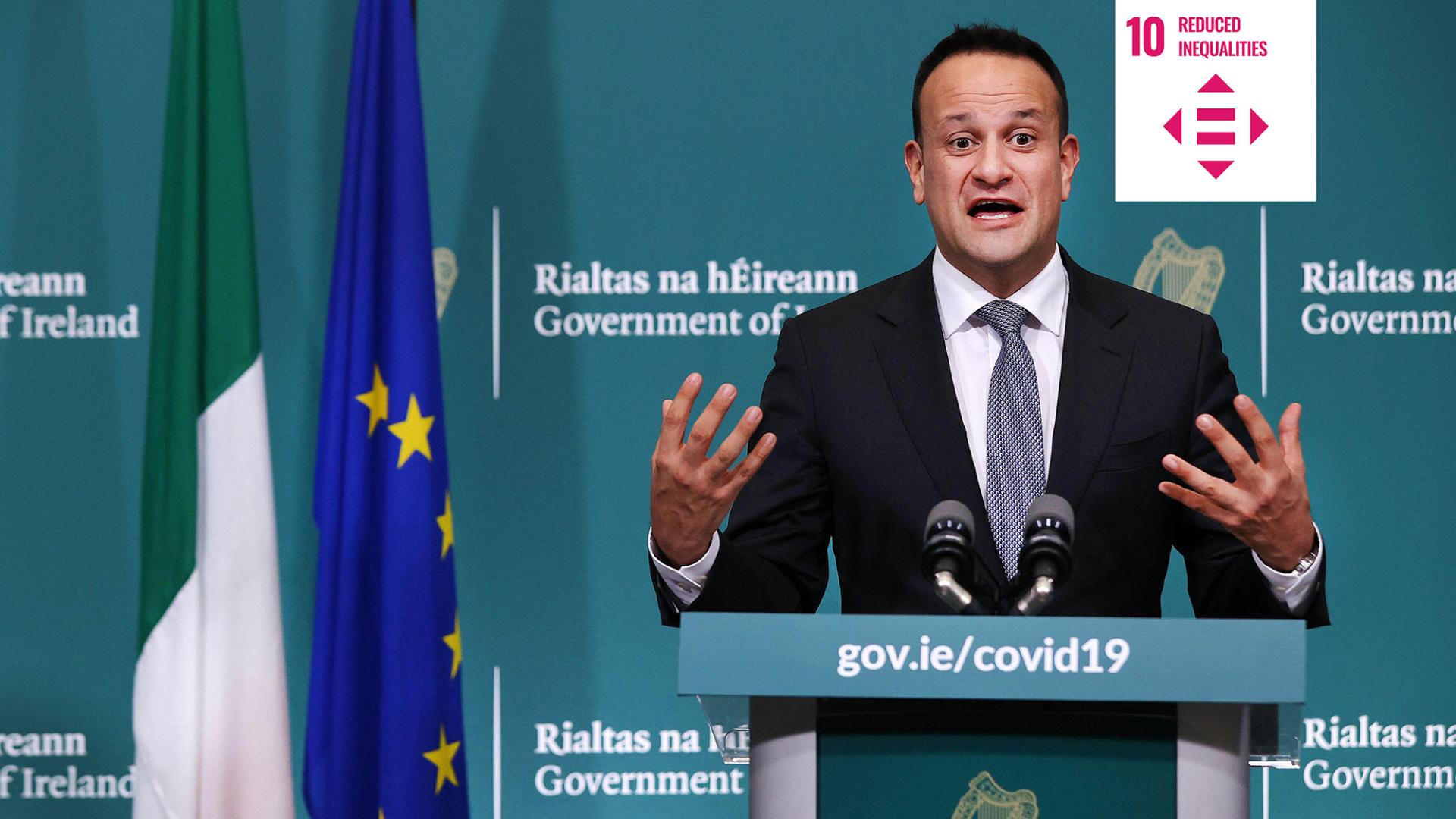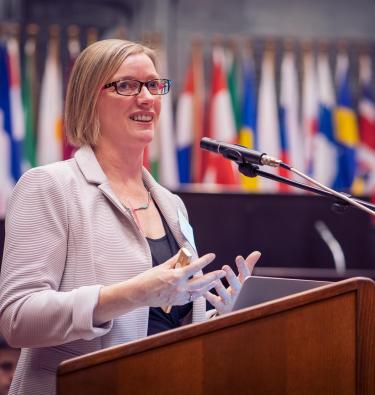
A crisis is defined generally as a sudden onset event which seriously disrupts the routines of large organisations, provokes unplanned courses of action, and poses a threat to the social fabric. Disasters on the other hand are larger in scale and impact, and tend to have longer timelines. Regardless of how a crisis or a disaster is defined, timely, accurate and clear communication from trusted outlets is crucial.
However, this is easier said than done. In reality the requirements for effective crisis communication are numerous and complex. One frequently overlooked and under-resourced aspect is the need for multilingual and multicultural crisis communication. Today’s society is highly mobile: cities and towns tend to be multilingual microcosms. Furthermore, crises are transboundary: they do not observe international borders. Researchers at Dublin City University have examined these issues in detail.
The icon on this article represents contribution towards the UN Sustainable Development Goals. The Sustainable Development Goals are 17 objectives designed by the United Nations to serve as a shared blueprint for peace and prosperity for people and the planet.
Cultural nuances
It is not enough to just translate content. As we saw first hand in the COVID-19 pandemic, different groups respond in different ways to large threats and to communication from authorities. Consideration for cultural cues as well as linguistic barriers in crisis communication is therefore essential.
It is this need for crisis translation DCU’s School of Applied Language and Intercultural Studies has been researching over a period of several years. DCU researchers have worked alongside other institutions and representatives from NGOs to raise awareness of translation not just as a crisis response tool, but also as a means of risk reduction.
Crises and disasters tend to be conceptualised in phases. We tend to think about the immediate aftermath for example, that is the ‘response’ stage of a crisis. This is when immediate, multilingual, information is required so that all members of a community can take appropriate action and ensure their safety. However, crises and disasters have many phases and tend to recur.
Therefore, organisations also need to communicate to communities about recovery, preparedness and mitigation. Again, translation plays a really important role in the communication of these various stages. It ensures inclusive communication and moves beyond the assumption that ‘most people’ will understand if we communicate with them in one or two ‘main’ languages.
Policy recommendations
Prof. Sharon O’Brien and Dr Patrick Cadwell have led research on this topic at DCU. Most recently, they have proposed the first ever maturity model for crisis translation. Maturity models have previously been used to assess performance across a range of sectors. They can be thought of as road maps for identifying one’s current position and providing directions towards improvement. This preliminary model is now being updated with input from collaborators in the NGO, health and governmental sectors.
This is the latest in a series of DCU-led research projects on the topic. The team has also looked at national and international policies on emergency response and has highlighted that multilingual, multicultural and dynamic approaches to crisis communication are seriously lacking.
As a result, DCU researchers have created a set of policy recommendations for any governmental or non-governmental organisation to tackle this issue. These recommendations were highlighted on PreventionWeb, the UN’s global knowledge sharing platform for disaster risk reduction and resilience. Subsequently, the team also successfully lobbied to ensure that the multilingual nature of Ireland’s society was better recognised in Ireland’s National Risk Assessment.
Open resources
In more practical terms, general knowledge of translation can be low in organisations that will need to communicate widely during a crisis. With this in mind, the team created a YouTube Channel on Crisis Translation that offers a basic, 101-type course on concepts of translation for anyone who needs to access it. They have also been subtitled into multiple languages by students at some of DCU’s partner universities in Switzerland and Japan. The course was recently added to the European Commission’s Innovation Radar.
As academics O’Brien and Cadwell are committed to teaching this topic so others may continue to raise awareness. Since 2018, an entire module dedicated to crisis translation has now been delivered at Masters level in DCU. In addition, the centre has shown global reach in recruiting several PhD students and postdoctoral researchers to come from abroad and conduct projects on crisis translation at DCU.
The advancement of crisis translation is an ongoing project. Through research and teaching, DCU is playing a major role in shaping how the concept is applied in national and international policy and practical responses.
Read full paper and citation here - Communicating COVID-19 in multiple languages: an assessment of the maturity of crisis communication practice in Ireland





